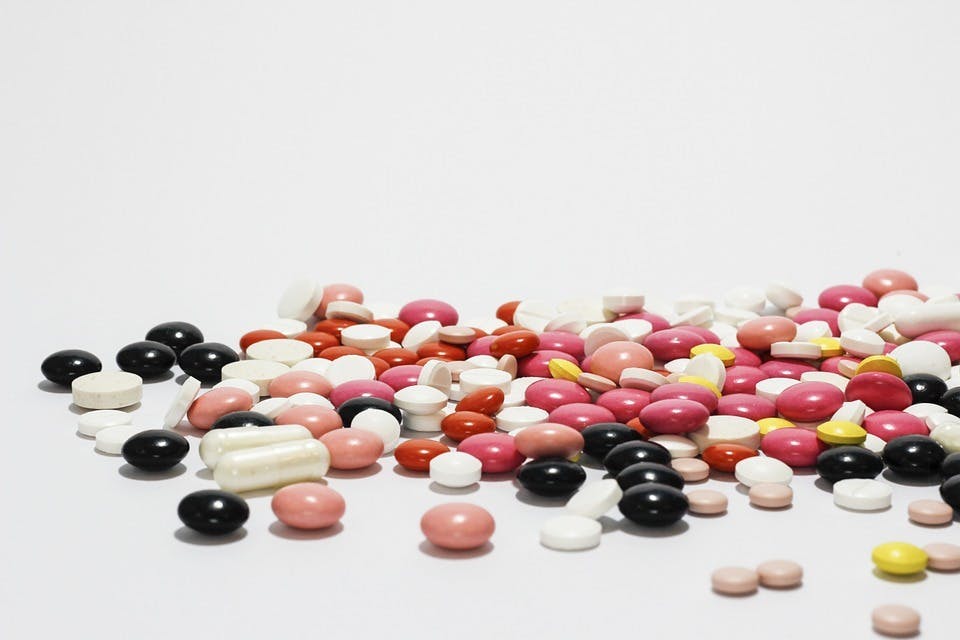Wondering what medications cause hair loss? Here are 10 of the main medications that can cause temporary or permanent hair loss:
1.) Acne medications (that contain VitaminA): The key ingredient in many acne medications is VitaminA, but in its processed form (retinoids, retinol). When taken in large doses, processed Vitamin A can lead to telogen effluvium, which is when the hair follicles go into their resting phase (telogen) too early, causing more hair to fall out. The effects often begin two to four months after a person begins the medication. Medications with Vitamin A include Accutane (Isotretinoin) and Retin-A (Tretinoin). A possible solution for hair loss while taking a Vitamin A-based medication is to lower the dosage.
2.) Antibiotics and Antifungals: Antibiotics are known to reduce hemoglobin and Vitamin B levels, which can sometimes make hair fall out faster. Hemoglobin is a protein found in red blood cells responsible for transporting oxygen from the lungs to the body’s tissues and carbon dioxide from the tissues to the lungs. Hemoglobin and myoglobin are also important for storing iron. Decreased hemoglobin leads to iron deficiency, which in turn causes hair to become brittle or dry, or even to fall out. Vitamin B and B-Complex Vitamins are important for maintaining healthy hair growth, thickness and shine.
3.) Anticonvulsants/Epileptic medications: Anticonvulsants, or anti-seizure medications, can also compromise hair health. Medications include trimethadione (Tridione) and valproic acid (Depakote).
4.) Antidepressants, anti-anxiety and mood disorder medications: Certain antidepressant medications are known to cause telogen effluvium, such as:
- Amitriptyline (Elavil, Endep)
- Amoxapine (Asendin)
- Clomipramine (Anafranil)
- Desipramine (Norpramin, Pertofrane)
- Doxepin (Adapin, Sinequan)
- Fluoxetine hydrochloride (Prozac)
- Haloperidol (Haldol)
- Paroxetine (Paxil)
- Sertraline hydrochloride (Zoloft)
5.) Birth control pills/female hormones: Oral contraceptives and hormone replacement therapies can affect hormonal balance and are among the drugs that cause hair loss. Estrogen and Progesterone (female hormones) are hormonal medications that have been linked to female pattern baldness and telogen effluvium in women.
6.) Blood pressure medications: Does Lisinopril cause hair loss? Blood pressure lowering medications such as Beta-blockers and Angiotensin-Converting Enzyme Inhibitors (ACE inhibitors) can lead to telogen effluvium, such as:
- Beta-blockers: Atenolol (Tenormin), Metoprolol (Lopressor), Nadolol (Corgord), Propranolol (Inderal, Inderal LA), and Timolol (Blocadren)
- ACE inhibitors: Captopril (Capoten), Lisinopril (Zestril, Prinivil), Enalapril (Vasotec)
7.) Blood-clotting medications: Blood thinners such as warfarin sodium (Panwarfarin, Sofarin, Coumadin) and heparin can cause hair loss.
8.) Chemotherapy and anti-cancer drugs: Chemotherapydoes more than attack cancer cells; it attacks all of our healthy cells, including hair follicles. Some chemotherapies that can cause hair loss include: Adriamycin, Cyclophosphamide, Cactinomycin, Docetaxel, and Doxorubicin.
9.) Cholesterol-lowering drugs: Cholesterol drugs including Atromid-S (clofibrate) and Lopid (gemfibrozil) can cause hair loss. Hair loss is a very rare side effect of statin-based cholesterol-lowering drugs. According to studies, cholesterol inhibitors such as Lipitor can cause an increase in hair shedding in only 1% of cases.
10.) Male hormones: Testosterone or anabolic steroids may cause male pattern baldness.

